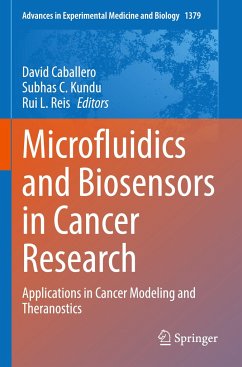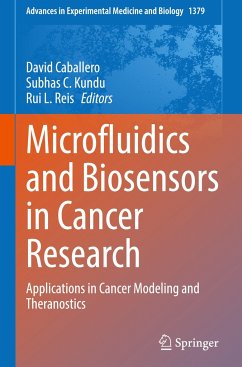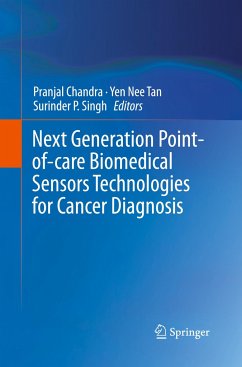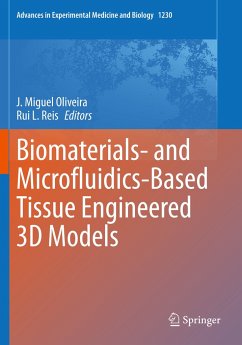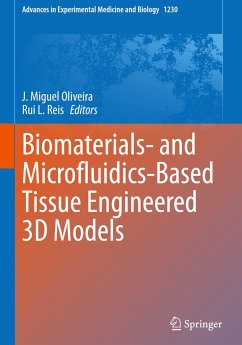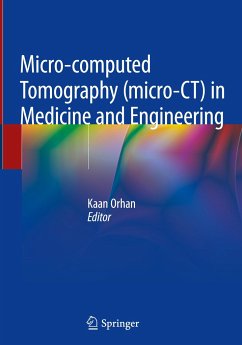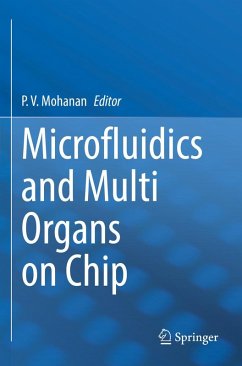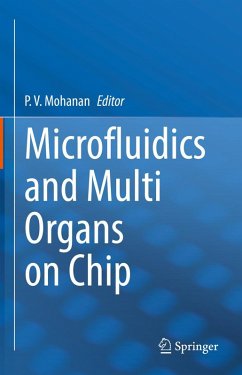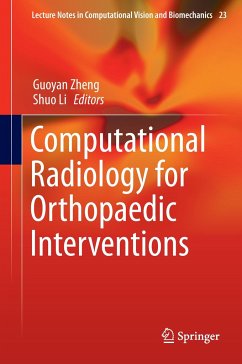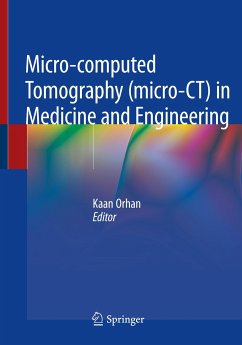
Microfluidics for Biologists
Fundamentals and Applications
Herausgegeben: Dixit, Chandra K.; Kaushik, Ajeet
Versandkostenfrei!
Versandfertig in 6-10 Tagen
113,99 €
inkl. MwSt.

PAYBACK Punkte
57 °P sammeln!
This book describes novel microtechnologies and integration strategies for developing a new class of assay systems to retrieve desired health information from patients in real-time. The selection and integration of sensor components and operational parameters for developing point-of-care (POC) are also described in detail. The basics that govern the microfluidic regimen and the techniques and methods currently employed for fabricating microfluidic systems and integrating biosensors are thoroughly covered. This book also describes the application of microfluidics in the field of cell and molecu...
This book describes novel microtechnologies and integration strategies for developing a new class of assay systems to retrieve desired health information from patients in real-time. The selection and integration of sensor components and operational parameters for developing point-of-care (POC) are also described in detail. The basics that govern the microfluidic regimen and the techniques and methods currently employed for fabricating microfluidic systems and integrating biosensors are thoroughly covered. This book also describes the application of microfluidics in the field of cell and molecular biology, single cell biology, disease diagnostics, as well as the commercially available systems that have been either introduced or have the potential of being used in research and development. This is an ideal book for aiding biologists in understanding the fundamentals and applications of microfluidics.
This book also:
Describes the preparatory methods for developing 3-dimensional microfluidic structures and their use for Lab-on-a-Chip design
Explains the significance of miniaturization and integration of sensing components to develop wearable sensors for point-of-care (POC)
Demonstrates the application of microfluidics to life sciences and analytical chemistry, including disease diagnostics and separations
Motivates new ideas related to novel platforms, valving technology, miniaturized transduction methods, and device integration to develop next generation sequencing
Discusses future prospects and challenges of the field of microfluidics in the areas of life sciences in general and diagnostics in particular
This book also:
Describes the preparatory methods for developing 3-dimensional microfluidic structures and their use for Lab-on-a-Chip design
Explains the significance of miniaturization and integration of sensing components to develop wearable sensors for point-of-care (POC)
Demonstrates the application of microfluidics to life sciences and analytical chemistry, including disease diagnostics and separations
Motivates new ideas related to novel platforms, valving technology, miniaturized transduction methods, and device integration to develop next generation sequencing
Discusses future prospects and challenges of the field of microfluidics in the areas of life sciences in general and diagnostics in particular





